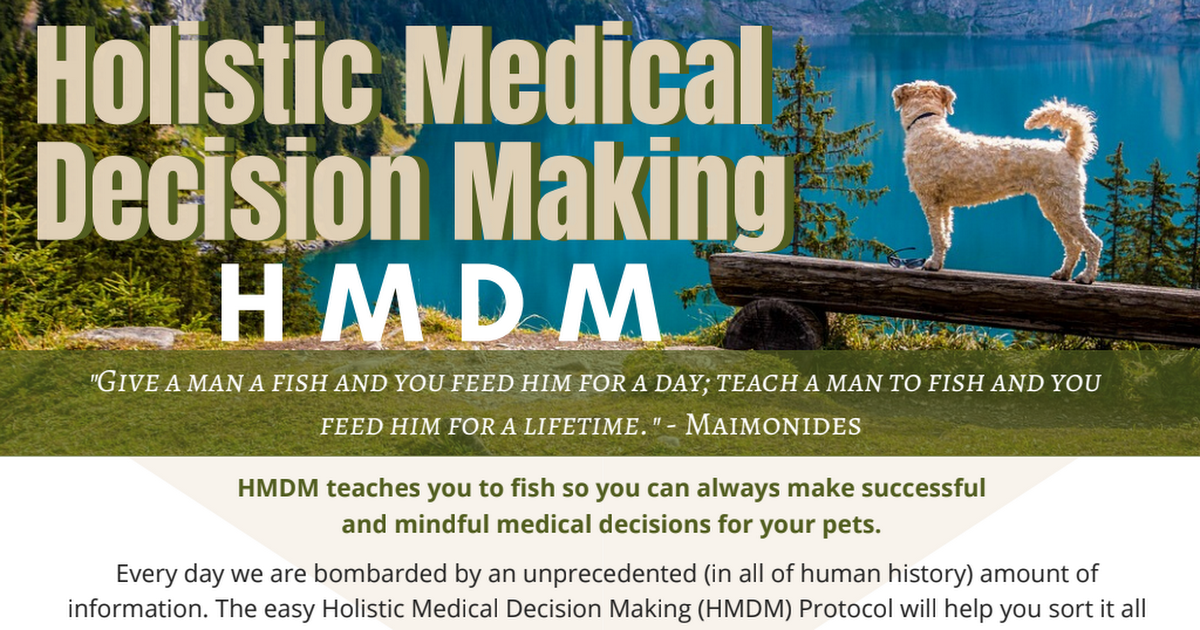I started to give Gabby Colostrum for her gut due to her possible protein losing enteropathy given her low albumin and total protein levels. Gabby has always had firm normal stool but it seems soon as I started the colostrum, (which I thought was supposed to treat diarrhea among other things as healing the gut,) She started to have about one "poop" a day that was diarrhea. She poops a lot in my opinion, 3-4 times a day, and here lately one of the poops, is loose. I am stopping the colostrum to watch. Is fermented goat milk healthy or not for the gut since it is dairy. Was also giving her some goat milk
Navigation
Install the app
How to install the app on iOS
Follow along with the video below to see how to install our site as a web app on your home screen.
Note: This feature may not be available in some browsers.
More options
-
Everyone can read this forum. To post on this forum, you must be a Community or VIP member. You can register here. If you are a member, to login use your email address for the username and the same password you use for the main site. If you have problems logging in to the forum, please email [email protected].
You are using an out of date browser. It may not display this or other websites correctly.
You should upgrade or use an alternative browser.
You should upgrade or use an alternative browser.
Significance of Symptoms and Can Colostrum Cause Diarrhea in Dogs?
- Thread starter LilF
- Start date
- Joined
- Feb 23, 2017
- Messages
- 6,331
Fantastic that you stopped the colostrum Lil! That will help you evaluate the effect of the colostrum on her poops.
I agree that 3-4 stools/day is quite a lot. What does she eat?
Yes, Answer's Fermented (raw) Goat's milk is great to try to help normalize her gut. It may also help her bilious vomiting. However you may want to wait a few days before starting it to allow you to evaluate the effect of stopping the colostrum.
 www.holisticactions.com
www.holisticactions.com
I agree that 3-4 stools/day is quite a lot. What does she eat?
Yes, Answer's Fermented (raw) Goat's milk is great to try to help normalize her gut. It may also help her bilious vomiting. However you may want to wait a few days before starting it to allow you to evaluate the effect of stopping the colostrum.
Need strategies for bilious vomiting
What are people doing for bilious vomiting. I am concerned about the long term damage to Gabby's stomach and esophagus. I am confused because for people with GERD issues they suggest not eating after 4PM but with dogs I am reading they should eat a small meal before bed. WHY? the food leaves...
Thank you Dr. Jeff! Gabby eats a raw diet topped with gently cooked bison or beef. She might also get an egg, sardines or some other fish in addition. I give her the amount of frozen dog food recommended for a 60 lb dog (Primal) I might give a tablespoon of juiced veggies or a couple tablespoons of cooked kale or other chopped veggies. The stool also has an odor usually that I can smell from a distance. The other dog eats the same food for his weight and poops once or twice a day. Maybe Gabby eats too much food but I was trying to make sure she gets enough protein given her low protein and albumin levels. Had her stool(it was some diarrhea) checked again and no parasites or anything.Fantastic that you stopped the colostrum Lil! That will help you evaluate the effect of the colostrum on her poops.
I agree that 3-4 stools/day is quite a lot. What does she eat?
Yes, Answer's Fermented (raw) Goat's milk is great to try to help normalize her gut. It may also help her bilious vomiting. However you may want to wait a few days before starting it to allow you to evaluate the effect of stopping the colostrum.
Need strategies for bilious vomiting
What are people doing for bilious vomiting. I am concerned about the long term damage to Gabby's stomach and esophagus. I am confused because for people with GERD issues they suggest not eating after 4PM but with dogs I am reading they should eat a small meal before bed. WHY? the food leaves...www.holisticactions.com
- Joined
- Feb 23, 2017
- Messages
- 6,331
The amount of food depends on her weight. If she's too skinny but pooping a lot then she may not be absorbing the food well.
Regarding the strong stool odor, this might be from too much food but it is more likely to be from an energetic or microbiome imbalance.
Aside from the ones in Answer's, does she get another probiotic or fermented food?
Regarding the strong stool odor, this might be from too much food but it is more likely to be from an energetic or microbiome imbalance.
Aside from the ones in Answer's, does she get another probiotic or fermented food?
Dr. Jeff, Gabby is definitely not too skinny  She is a healthy wt with good musculature too. She was taking the Rx Vitamins probiotic (RxBiotic). No fermented foods. but getting juiced vegetables most days. I stopped feeding her Answers and went back to primal. I hear no gurgling in her stomach and not a lot of flatulence either. She regurgitates occasionally--again maybe too much food....Not sure if I mentioned. I sent her stool off to Animalbiome . You're probably right, too much food but was trying to make sure she got enough protein. When I cut way back early in the year, that is when the levels of protein and albumin started to decline...so I went back to feeding her probably too much. Have cut back now Also just now started bone broth, putting in the glutamine. Gabby has become very clingy. I know that is a clue. That is the way the other dog got when he had a splenic tumor. It is the way Gabby was when she had her functional thyroid tumor. She has become more clingy the past 6 months or so.
She is a healthy wt with good musculature too. She was taking the Rx Vitamins probiotic (RxBiotic). No fermented foods. but getting juiced vegetables most days. I stopped feeding her Answers and went back to primal. I hear no gurgling in her stomach and not a lot of flatulence either. She regurgitates occasionally--again maybe too much food....Not sure if I mentioned. I sent her stool off to Animalbiome . You're probably right, too much food but was trying to make sure she got enough protein. When I cut way back early in the year, that is when the levels of protein and albumin started to decline...so I went back to feeding her probably too much. Have cut back now Also just now started bone broth, putting in the glutamine. Gabby has become very clingy. I know that is a clue. That is the way the other dog got when he had a splenic tumor. It is the way Gabby was when she had her functional thyroid tumor. She has become more clingy the past 6 months or so.
I did not know about clinginess being a sign, a bad one perhaps? Gabby is comfortable inside or outside. She is not clingy outside so much when she is in the huge fence enclosure when I am there. But, if my husband is in the fence with her and I have left she does often wait at the gate or not want to play with him until I come back into the fence. .In the house she needs to check where I am and she will move to the area I am at (upstairs, downstairs) but not have to be right next to me. I often see her just poke her head in the room and walk away. She does go to her drinking water bowl a lot but net water consumption seemed within range for her wt. I noticed her SDMA test was 14 which is the upper limit of the range....I pay attention to values like this although the conventional vets don't. I hope that test is not an emerging red flag. In the summer she will seek the shade on a really hot day. In the house I think she is comfortable with her usual sleeping areas. I guess I have noticed that clinginess and following means something may not be quite right.
- Joined
- Feb 23, 2017
- Messages
- 6,331
Wow, how fantastic that you said that Lil. I am jumping for joy! 
Knowing whether a sign or symptom is "good or bad" is one of my favorite topics!!
Especially since the answer is so easy to understand.
Symptoms are almost always good.
Even though that may seem odd, the reason for it is super important. And that is, the true significance of symptoms when interpreted homeopathically and energetically.
Symptoms simply are observable and measurable physiologic changes in the body.
BEAM (behavior, energy, appetite, and mood) are the most important observable (subjective) ones. They also seem to reflect quality of life, pain and vitality.
Objective and measurable changes like temperature, heart rate, blood count, etc. are also called clinical signs
Unfortunately, truly holistic interpretation of symptoms is rarely done nowadays in modern medicine. Even by some "holistic" vets.
That's because they are actually holistically oriented, but not truly holistic. They are using holistic modalities (like acupuncture, supplement, and homeopathy), within the conventional paradigm. So-called medical acupuncture is an example.
The holistic paradigm founded in China and India thousands of years ago, and still used today, is Vitalistic.
Vitalistic vets like integrative veterinary homeopaths interpret symptoms as being secondary to energetic fluctuations.
Energy is the essence of the "dynamic" equilibrium that maintains homeostasis. Energy is the difference between life and death.
However, this energetic balance (the ) has not been well documented in veterinary (or human) medicine.
Despite this, partial view of wellness and dis-ease of conventional medicine that is taught in vet school (and after), modern veterinary homeopaths base the choice of homeopathic medicines on energetic fluctuations that may result in symptoms, for 200 years.
The Vitality and Balance System (VBS) that you learn here at HA! is based on homeopathy and integrates energetic vitality and balance with physiologically based modern vet med.
It does this by postulating that there is a (theoretical) internal energetic balance in the body.
In my clinical opinion it should be scientifically documented ASAP
The bottom line for you is that it really doesn't matter. There are simple, safe and (potentially) effective holistic actions based on the vital force, prana and chi that can be used to help Gabby today.
Anyway, thanks for your first question.
Regarding her SDMA or any single symptom, ideally it would be interpreted in context. That's why I asked for all of her blood results in the other thread.
If her creatinine is also creeping up, this means that the SDMA may indeed be indicative of early kidney changes. However, her very low albumin is more of a potential problem....
BTW-I have to run now to get in the infrared sauna, and wanted to share these wise words:


Knowing whether a sign or symptom is "good or bad" is one of my favorite topics!!
Especially since the answer is so easy to understand.
Symptoms are almost always good.
Even though that may seem odd, the reason for it is super important. And that is, the true significance of symptoms when interpreted homeopathically and energetically.
Symptoms simply are observable and measurable physiologic changes in the body.
BEAM (behavior, energy, appetite, and mood) are the most important observable (subjective) ones. They also seem to reflect quality of life, pain and vitality.
Objective and measurable changes like temperature, heart rate, blood count, etc. are also called clinical signs
Unfortunately, truly holistic interpretation of symptoms is rarely done nowadays in modern medicine. Even by some "holistic" vets.
That's because they are actually holistically oriented, but not truly holistic. They are using holistic modalities (like acupuncture, supplement, and homeopathy), within the conventional paradigm. So-called medical acupuncture is an example.
The holistic paradigm founded in China and India thousands of years ago, and still used today, is Vitalistic.
Vitalistic vets like integrative veterinary homeopaths interpret symptoms as being secondary to energetic fluctuations.
Energy is the essence of the "dynamic" equilibrium that maintains homeostasis. Energy is the difference between life and death.
However, this energetic balance (the ) has not been well documented in veterinary (or human) medicine.
Despite this, partial view of wellness and dis-ease of conventional medicine that is taught in vet school (and after), modern veterinary homeopaths base the choice of homeopathic medicines on energetic fluctuations that may result in symptoms, for 200 years.
The Vitality and Balance System (VBS) that you learn here at HA! is based on homeopathy and integrates energetic vitality and balance with physiologically based modern vet med.
It does this by postulating that there is a (theoretical) internal energetic balance in the body.
In my clinical opinion it should be scientifically documented ASAP
The bottom line for you is that it really doesn't matter. There are simple, safe and (potentially) effective holistic actions based on the vital force, prana and chi that can be used to help Gabby today.
Anyway, thanks for your first question.
Regarding her SDMA or any single symptom, ideally it would be interpreted in context. That's why I asked for all of her blood results in the other thread.
If her creatinine is also creeping up, this means that the SDMA may indeed be indicative of early kidney changes. However, her very low albumin is more of a potential problem....
BTW-I have to run now to get in the infrared sauna, and wanted to share these wise words:

- Joined
- Feb 23, 2017
- Messages
- 6,331
Good morning @everyone-
Here's Missy's video and podcast about significance of symptoms within the context of Holistic Medical Decision Making (HMDM) for pets:
Here's the audio version:
Symptoms Are Clues: What Is Your Dog's Body Saying? - dog happi
Also, here's the HMDM overview report:

 drive.google.com
drive.google.com

Here's Missy's video and podcast about significance of symptoms within the context of Holistic Medical Decision Making (HMDM) for pets:
Here's the audio version:
Symptoms Are Clues: What Is Your Dog's Body Saying? - dog happi
Also, here's the HMDM overview report:
HMDM2.pdf

- Joined
- Dec 30, 2018
- Messages
- 326
I certainly agree with Dr. Jeff that virtually all signs are helpful.
I think what Lil (and many guardians) wonder is whether a certain sign indicates a positive or negative development in their pet's condition.
The answer can be hard to see, especially when we are in the middle of a major physical concern with one of our loved ones.
For instance, clinginess could indicate a negative development, if it is caused by the patient's anxiety or physical unease.
Another patient may have had a low vitality, so all they wanted to do was lie alone, and when they felt better, they sought out people to be with. In this situation, the clinginess is a good sign.
All symptoms must be considered in the context of the patient, the situation, and their people. One does indeed need to be a sleuth to understand one's pets!
I think what Lil (and many guardians) wonder is whether a certain sign indicates a positive or negative development in their pet's condition.
The answer can be hard to see, especially when we are in the middle of a major physical concern with one of our loved ones.
For instance, clinginess could indicate a negative development, if it is caused by the patient's anxiety or physical unease.
Another patient may have had a low vitality, so all they wanted to do was lie alone, and when they felt better, they sought out people to be with. In this situation, the clinginess is a good sign.
All symptoms must be considered in the context of the patient, the situation, and their people. One does indeed need to be a sleuth to understand one's pets!
Similar threads
- Replies
- 17
- Views
- 3K
- Replies
- 5
- Views
- 2K
- Replies
- 3
- Views
- 928
- Replies
- 1
- Views
- 799
Share:
Share this page
Weekly Digest
Subscribe/Unsubscribe |
